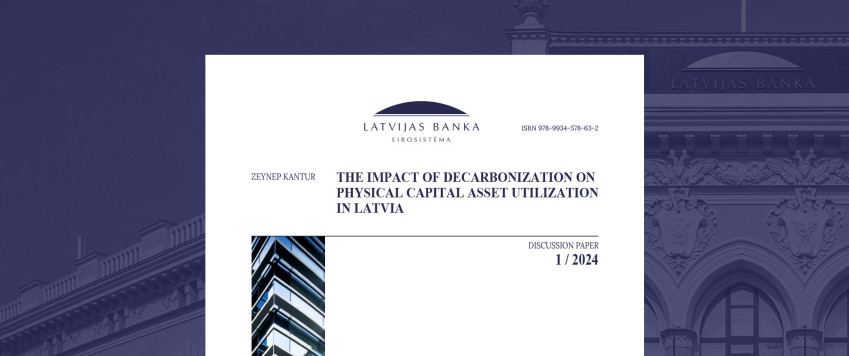The Impact of Decarbonization on Physical Capital Asset Utilization in Latvia
Discussion Paper 1/2024

A stranded asset refers to economic assets that lose their ability to contribute value within their own sector and in other sectors due to the decarbonization of production processes required to meet global climate targets. This process involves either idling or abandoning a portion of physical capital, which can harm the sector in which it is employed and propagate negative effects throughout the entire economy. This study examines the exposure of sectors in Latvia to the risk of physical capital stranding resulting from decarbonizing the economy. Using Input-Output Tables and capital stock data, we quantify the effects of stranded assets and find that the mining and quarrying sector has the highest external asset stranding multipliers. The sectors in Latvia most vulnerable to the impacts of global fossil stranding include land transportation and pipeline transport (H49), electricity, gas, steam, and air conditioning (D35), and agriculture (A01).
Keywords: capital utilization, stranded assets, Input-Output Model, Ghosh mul- tipliers
JEL codes: C67, E22, L72
Textual error
«… …»

